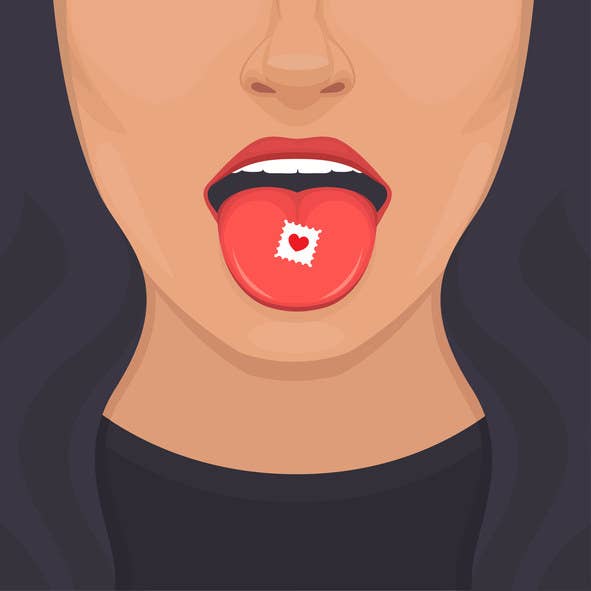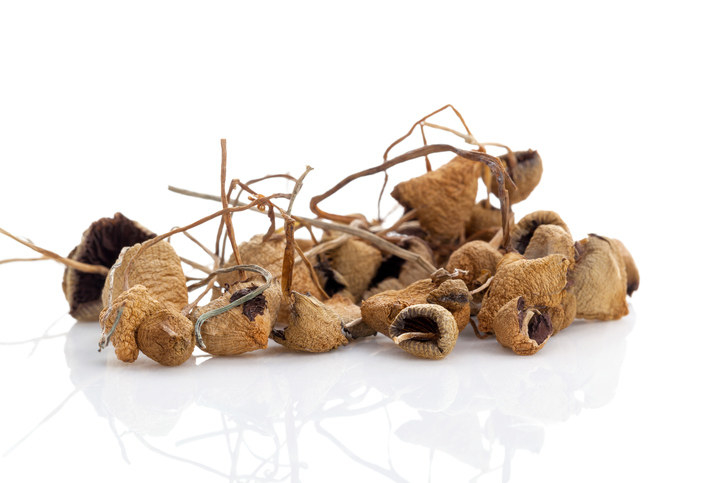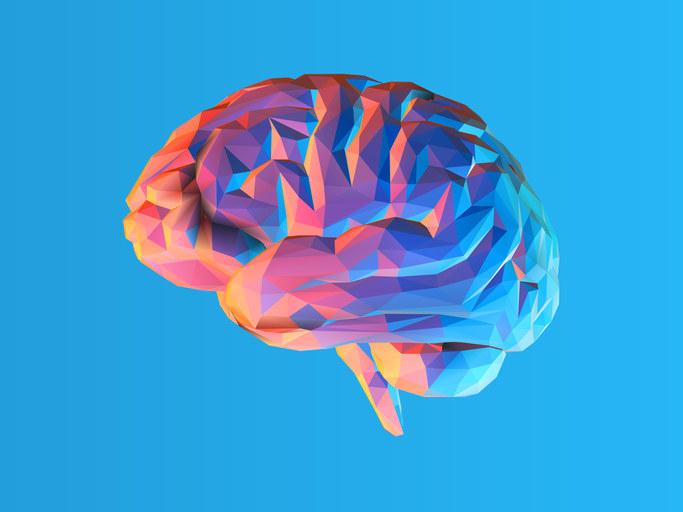A world-first trial investigating the effects of microdosing with psychedelics is beginning this week at London's Imperial College.
Microdosing with psychedelics involves taking approximately a tenth of the recreational dose (10 to 20 micrograms for LSD), and there is anecdotal evidence to suggest that the practice improves mood, creativity and wellbeing for some users.
At these small doses, the psychedelic effects on perception are not apparent.
The ambitious trial, run by the Beckley Foundation through its laboratories at Imperial College, has recruited voluntary participants who already microdose with psychedelics such as LSD and psilocybin, and will observe the effects of this practice with a "self-blinding" method until midway through next year.
The "self-blinding" method will be used due to the significant expense of setting up a normal randomised control trial with these illicit substances.
The method means that participants will create their own capsules of psychedelic microdoses and then place these doses, as well as placebo capsultes provided by the researchers, in unlabelled envelopes to take at random.
The capsules will be marked with barcodes that can be read by smartphones so that the researchers can monitor when participants are taking placebo drugs.
The effects of microdosing will be tracked by online questionnaires and a series of cognitive tests.
This is the first trial with a control element to observe the effects of microdosing; it's necessary to introduce a placebo because the type of people who are already participating in illegal microdosing expect for it to have some beneficial effects.
As this is not a traditional controlled trial and uses elements of personal experimentation, the researchers say that the strength of the evidence will be "somewhere in between" anecdotal and empirical.

However, the study will still provide an important stepping stone to understanding the role of microdosing with psychedelics in science and medicine.
In a recruitment video for the trial Imperial College and the Beckley Foundation say that the "results from this study will contribute greatly to our understanding of the potential benefits of low doses of psychedelic compounds and could point us to explore the applications of microdosing under clinical trial settings".
So, what do we actually know about microdosing with psychedelics?
As it turns out, very little.
While there is a great deal of evidence to say that traditional cultures have used psychedelic plants such as peyote and magic mushrooms in aspects of ritual and daily life, it's not known where or when microdosing began.
Albert Hofmann, the inventor of LSD, microdosed the drug in his old age, and the practice gained greater visibility when James Fadiman mentioned it in his 2011 book The Psychedelic Explorer's Guide.
In recent years microdosing with psychedelics (and LSD specifically) has attracted wide attention for its use in demanding work spaces such as Silicon Valley offices, where workers have reported that taking small doses of LSD (or acid) helps creative performance, empathy and focus.
Dr Stephen Bright, an adjunct senior research fellow at the National Drug Research Institute at Curtin University, told BuzzFeed News that the research on microdosing is in its early stages.
"We don't know if it does anything yet. The limitations of all the research that's been done so far is that it's based on self reporting — we don't know if the people actually took LSD or they took something that was similar to LSD. We don't know if it was the placebo effect that was causing these changes."
For example, one Norwegian study from the University of Bergen published earlier this year interviewed 21 users who microdose with psychedelic drugs and found that they reported "mostly positive consequences from this form of drug use".
The reported effects included improved mood, cognition and creativity, but the researchers stressed that the findings are not generalisable because it was a purely observational study.
Bright says a large amount of the anecdotal evidence of microdosing benefits that the research investigates comes from online communities such as SubReddits.
"There's a plethora of anecdotal data on places like Reddit. People are reporting that it enhances their creativity, it equips them to be more present-moment focused and it helps with emotional regulation," said Bright.
For example, r/microdosing has over 36,000 users sharing information, tips and success stories.
One recent post by a user in the SubReddit reads:
"Recently, at the end of the (dose) day I feel such a clarity, calmness, enlightenment in my whole body. I'm feeling like a Buddhist monk or something with a lot of self consciousness and self confidence.
Does anybody noticed [sic] something like this too? I'm in two months now."
However, the SubReddit also has a section specifically built for complaints of negative effects, including headaches, loss of energy, stomach pain, accidental doses that induce the perception-altering effects, and feelings of depression or coming down.
Bright also points out that there is anecdotal evidence to suggest that microdosing with LSD may give more consistently positive experiences than microdosing with psilocybin.
A study currently under review conducted by Dr Vince Polito and Professor Richard Stevenson from Macquarie University recruited 98 people who microdose with psychedelics from these online forums, and tracked each person's experiences over a period of six weeks.
The self-report study asked participants to fill out a daily ratings survey and found a reported decrease in depression, anxiety and stress, and an increase in ability to focus.
However, the participants also indicated a slight increase in neuroticism.
Polito told BuzzFeed News that the anecdotal evidence for microdosing is remarkable enough that it needs to be explored with long-term empirical studies.
"People talk about very dramatic changes in their cognition, in their perception, and in many cases ... there's fairly common reports of these substances having sustained positive effects," he said.
"The magnitude of changes that people report anecdotally certainly seems to exceed the sort of things that we see with most traditional medicine."

So, what effects could psychedelic microdosing be having in the brain?
Classic psychedelics (or hallucinogens) such as psilocybin (the compound found in "magic mushrooms"), mescaline (the compound found in peyote cacti) and LSD have been shown to activate complex processes with the serotonin and glutamate networks in the brain's prefrontal cortex at recreational doses, which is approximately 100 to 200 micrograms.
This means that these hallucinogens reduce the default mode network in the brain, allowing for increased communication to occur with different areas of the brain, leading to creative thinking and the characteristic sense of wonderment.
This hyperactive neural connectivity seen in the brain after taking psychedelics is thought to increase neural plasticity. This increase suggests that psychedelics can help to address the neurological basis of psychiatric disorders such as major depression, anxiety disorders, post-traumatic stress disorder and obsessive compulsive disorder.
However, Bright says that these studies have only been performed with large doses.
"We don't know if that's what's happening [in the brain] with microdosing. My guess would be maybe, but certainly not to the extent that the full dose has."
Polito says the psychopharmacological effects of microdosing with psychedelics are "entirely up in the air at this stage".
Why is there so little research on microdosing?
Bright says there is so little research on microdosing due to barriers relating to the illicit nature of these substances.
"In Australia we have not conducted any research in psychedelic science in terms of providing people with the actual drug, because of the significant bureaucratic barriers to doing that, including issues with funding."
Microdosing research has resorted to exclusively using participants who already engage in the practice because of these issues.

Due to the lack of regulation in the market and the fact that these studies rely on self-measuring doses, Bright says that the research can be unreliable and have unintended effects for users.
"Considering that we don't have a regulated market, people have consumed more than they thought they would and ended up at work tripping balls."
Bright says that he has faced many barriers in his research in Australia related to MDMA-assisted psychotherapy for post-traumatic stress disorder.
Polito says that organisations such as the Multidisciplinary Association for Psychedelic Studies in the United States are leading the way with empirical long-term research into psychedelics.
"It is definitely unusual that Australia doesn't have any empirical psychedelic research program going on when most Western countries now do have that," he said. "There is more and more evidence that these substances can have clinical and research applications."
Polito thinks that there are now two streams of research to explore: clinical applications for problems such as anxiety, and a more "pure" form of research looking at how these psychedelic substances affect different aspects of cognition for pharmaceutical applications.
